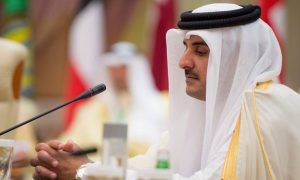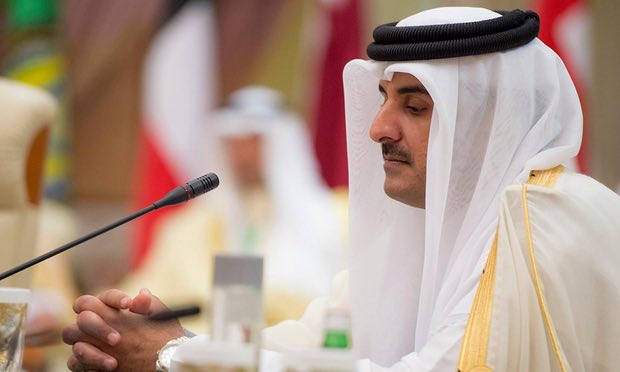 Qatar’s ruler travelled Wednesday to Kuwait City in a move to end diplomatic row with the region’s two most powerful states, Saudi Arabia and United Arab Emirates, following the publication of the gas-rich country’s pro-position on Hamas, Hezbollah and friendly statement about Iran.
Qatar’s ruler travelled Wednesday to Kuwait City in a move to end diplomatic row with the region’s two most powerful states, Saudi Arabia and United Arab Emirates, following the publication of the gas-rich country’s pro-position on Hamas, Hezbollah and friendly statement about Iran.
Kuwait has accepted to play a go-between in the crisis, which erupted over the past week between Doha, Riyadh and Abu Dhabi.
Qatar caused frustration in Riyadh and Abu Dhabi after statements allegedly from Emir Sheikh Tamim calling for collaboration with Iran and review of GCC Cooperation’s position on groups such as Hamas, Hezbollah and the Muslim Brotherhood were published on the Qatari National news agency (QNA) and associated platforms.
In the statements, Qatar ruler reportedly described Iran as a “major force to ensure stability in the region” and defended Hamas and Lebanon-based Hezbollah as resistance movements.
Riyadh, Abu Dhabi took strong actions suspending all Qatari media websites including al Jazeera and London-based Middle East Eye.
Egypt also took similar actions.
Doha vehemently rejected the authorship of the statements arguing that its national news agency was hacked.
The Emir’s statements, which were made few days after US President Donald Trump’s urged the Gulf States to unify to stamp out terrorism and to quarantine Iran, kicked the GCC in the teeth on its position on Iran.
Doha in 2014 suffered a regional isolation after Riyadh and Abu Dhabi pulled out their envoys for eight months because of Qatar’s support for “parties threatening the stability of the GCC members”.
Doha was only reinstated after Sheikh Tamim agreed to curtail his Emirate’s meddling into internal affairs of other countries and to curb its endorsement for groups in the Arab world.
Kuwait, which is according to analysts, the “only country in the region which has no problem with anybody” had also conducted mediation then.
